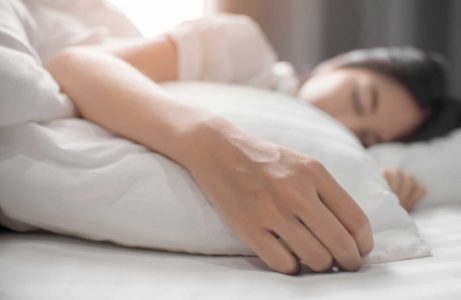Your Guide to a Good Night’s Sleep

Most of us today, idolize the ones working on 3 to 4 hours of sleep. It’s all cool but I’m sure you remember the sweet taste of sleep? Oh no, I’m not tempting you to sleep for long hours and forget all your responsibilities. I know we’re living in a fleet-footed world and 24 hours just don’t seem enough. When you don’t have something in adequate amounts you should always try and optimize it rather than disrupting everything, especially your sleep. Let me explain you with an example – when you leave for a trip, you pack your stuff in a nice and organized manner but when you start packing for your return journey, what happens? You know that very well!
When your responsibilities seem to overpower you, stop, take a deep breath and make those 24 hours your slave.
How can you do that?
First of all, find out what works for you. People need a different amount of sleeping hours to boost their energy levels. You need to find your optimum level. After that, start scheduling your work and leisure timings accordingly.
Do you feel sleepy but still keep tossing around even after getting in bed at the right time?
If yes, this is probably because of your environment and poor pre-sleep discipline. To have the sleep that you are looking for, you need to work hard. Create an environment, which works best for you.
Pre-sleep discipline:
Keeping all the distractions aside mentally and physically, dim the lights and start preparing for your bed. This will allow your mind to know it’s time to sleep and till the time you get to bed, your head would be light as a feather.
Set your Bedroom Temperature
Body and bedroom temperature can profoundly impact sleep quality. Studies reveal that high or low temperatures in the sleeping area can deteriorate sleep quality. Depending on your body’s preferences, you need to find what suits your body for a good and comfortable sleep. In most cases, the bedroom should be cool (between 60 and 67 degrees) for optimal sleep.
Take a relaxing shower
A relaxing warm shower is another popular way to sleep better. According to studies, a hot bath of 90 minutes before bed improves sleep quality and helps people get more sound sleep. Alternatively speaking, if you don’t want to take a bath at night, simply dip your feet in lukewarm water for relaxation for improved sleep.
Invest in a comfortable bed, mattress, and pillow
Some people wonder why they always sleep better in the hotel. Apart from having a relaxed environment, bed quality can also affect your sleep. The best mattress and bedding is extremely subjective. If you plan on upgrading your bedding, base your choice on personal preferences.
Sleep hygiene is important
Blue light from cell phones, TV screens, and laptops can make it difficult for you to fall asleep, so, make sure you turn them off at least half an hour before you sleep. Even the bright light from a lamp or the window can affect your pattern; consider using blackout curtains, eye-masks, white noise machines, and other accessories for a good night’s sleep.
The bottom line
Sleep plays a crucial role when it comes to our health. Common sleep disorders such as sleep apnea can cause sleep loss; people with sleep apnea characteristically make periodic gasping or snorting noises, momentarily interrupting their sleep. These obstructions during sleep can pose serious complications and should be sought from a medical professional. Also, sleep loss and sleep disorders are linked with hypertension, diabetes, high cholesterol, depression, anxiety, obesity, mental distress, and adverse health behaviors such as cigarette smoking, physical inactivity, and heavy drinking.
Additionally, sleep medicines aren’t the solution and even lead to addiction. If you are interested in optimal health and wellbeing, then you should make sleep your topmost priority and start incorporating some of the tips above.
Disclaimer: This content including advice provides generic information only. It is in no way a substitute for qualified medical opinion. Always consult a specialist or your own doctor for more information.
References:
- SleepFoundation.org, ‘Sleep Hygiene’, official website (accessed on 16th April 2020)
- Centers for Disease Control and Prevention, ‘Sleep and Sleep Disorders’, official CDC website (accessed on 16th April 2020)
- Centers for Disease Control and Prevention, ‘Perceived Insufficient Rest or Sleep’, official CDC website (accessed on 16th April 2020)
Related Articles:
https://voiceofhealth.in/insomnia-causes-signs-and-treatments/
https://voiceofhealth.in/?s=sleep
Source links for reference:
https://www.sleepfoundation.org/articles/sleep-hygiene
